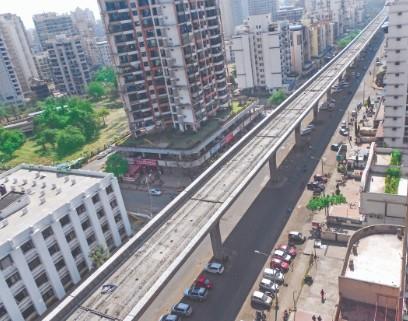
CIDCO Unveils New Policy To Build Global-Standard Iconic Townships Near Navi Mumbai Airport
The policy was cleared by the state cabinet last week, and CIDCO describes it as a strategic response to the impending commissioning of Navi Mumbai International Airport and the region's emergence as a major growth node.
“CIDCO has drawn parallels with international developments such as Marina Bay Sands in Singapore and the business districts of Dubai and Abu Dhabi, arguing that Navi Mumbai can also support landmark projects that create a distinct global identity. By unlocking large land banks through a controlled, revenue-sharing development rights model, the Corporation expects to spur premium townships, business districts and tourism-oriented precincts while protecting the public interest and preserving long-term land value,” government sources said.
The policy aims to move beyond the existing practice of leasing individual plots through open auction, where each leaseholder develops their own plot in isolation. Although the current model works for routine projects, it has made it difficult to realise a unified urban vision on large land banks, which prompted CIDCO to design a mechanism closer to the state's Integrated Township Policy.
Under the prevailing regime, CIDCO allots plots on lease and private developers build as per lease conditions and planning regulations, leading to piecemeal built form and missed opportunities for creating landmark districts. The new policy seeks to support 'iconic' and concept-driven development featuring distinctive skylines, public plazas and integrated public amenities across large, contiguous parcels.
“CIDCO expects such iconic projects to transform local urban landscapes, improve tourism potential, and significantly push up surrounding land values, thereby adding to its own land monetisation prospects. Projects can be purely residential, commercial, or mixed-use, but must embed public infrastructure and amenities on the lines of township norms, including roads, utilities, open spaces and civic facilities,” said government sources.
A central shift in the policy is the move from outright leasing to a Construction and Development (C&D) Agreement model, where only development rights are granted and no leasehold interest in land is transferred.
A private company, selected through a competitive tender, will plan, finance, construct and market the project, while CIDCO retains land ownership throughout. The private company will not be allowed to mortgage the land, limiting third-party encumbrances and protecting the authority's title.
The operator will be permitted to sell only completed built units and not open plots, and will be responsible for operations and maintenance during the defined concession period. CIDCO will retain the right to take back the land if project milestones are not achieved or if there are material violations.
To prevent land banking and delays, the policy prescribes clear time targets within a 20-year agreement period. By Year 12, at least 75 per cent of the total construction must have commenced, and by Year 15, the developer must obtain commencement certificates for all components along with occupancy certificates for at least 75 per cent of the built-up area.
By Year 20, the entire project is expected to be completed with full occupancy certification. Non-saleable components such as utilities, internal roads and public facilities are to be delivered within the first 12 years. Failure to meet milestones will attract penalties, including advance payments against estimated future revenue share, and may trigger CIDCO's right to resume undeveloped or unsold portions.
The policy adopts a hybrid financial structure that combines an upfront fixed fee with a variable revenue share from unit sales. The fixed fee for development rights must be paid at least 20 per cent before signing the C&D Agreement, with the balance staggered over up to eight years and converted to present value using a simple interest rate of 9 per cent.
In addition, bidders will quote a revenue-share percentage on the sale proceeds of each unit, which will serve as the main bidding parameter in the tender process. This arrangement aims to protect CIDCO's downside through assured fixed income, while allowing it to participate in the upside from successful, high-value iconic developments.
(Contact Sanjay Jog at... for any clarification)

Legal Disclaimer:
MENAFN provides the
information “as is” without warranty of any kind. We do not accept
any responsibility or liability for the accuracy, content, images,
videos, licenses, completeness, legality, or reliability of the information
contained in this article. If you have any complaints or copyright
issues related to this article, kindly contact the provider above.

















Comments
No comment